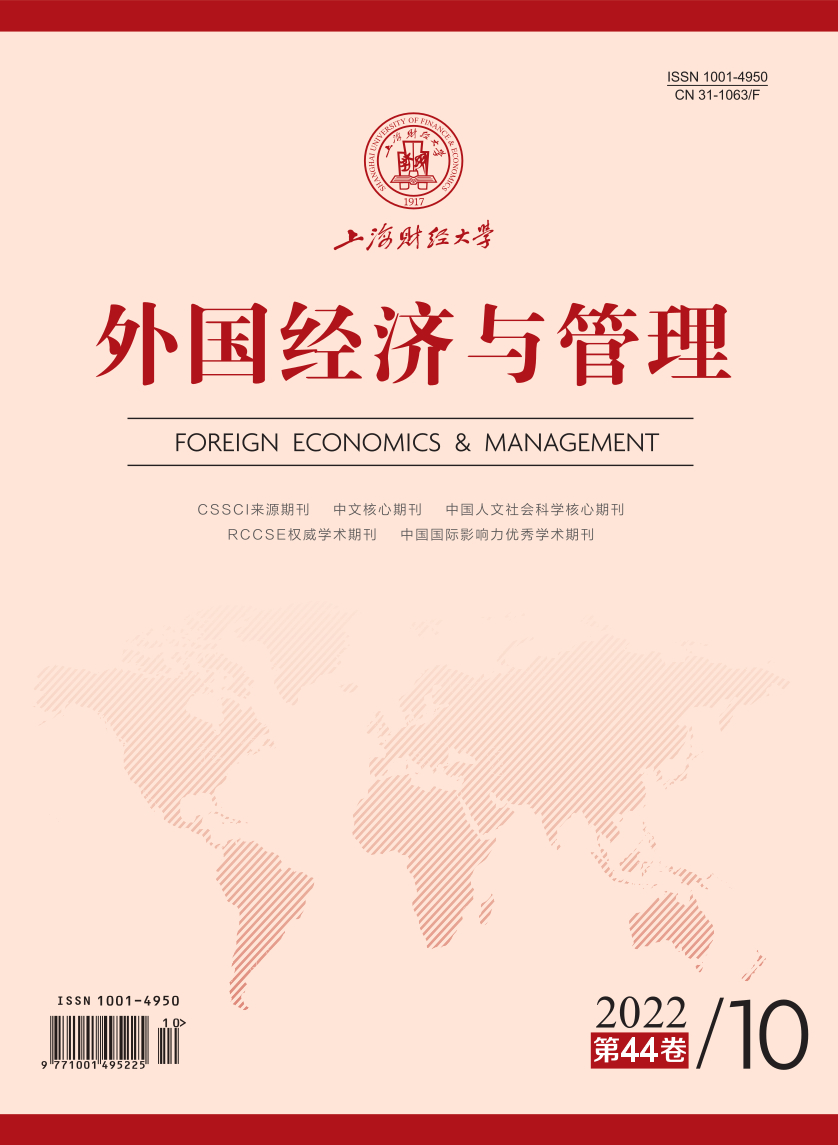[1]Cao Y. Civilization’s Source and it’s Implication[J]. Journal of Northeast Normal University (Philosophy and Social Sciences),2006, (3):31-33.
[2]Chang S C, Chen C H, Chao G, Liu Z C. Research on the Mechanism of Confucian Culture in Relieving Work Stress[J]. Foreign Economics & Management,2020, (5):105-120.
[3]Chao G, Qian C, Chen H H, Wang L. Research on the Generalized Exchange Behavior of Traditional Culture Practicing Enterprises[J]. China Industrial Economics,2019, (6):173-192.
[4]Chen B K, Chen S Y. Flowing Social Capital: Can Traditional Clan Culture Affect Migrants' Employment in Modern Society?[J]. Economic Research Journal,2018, (3):35-49.
[5]Chen H H. The Evolution of the Management Model of Family-Based Businesses: A Perspective on the Culture of Pan-Familyism[J]. Journal of Social Sciences,2003, (7):124-128.
[6]Chen Q N. “Traditional Family System and Business Organization”, Marriage, Family and Society[M]. China Taipei: Taipei Yun Chen Culture Company, 1986.
[7]Cheng X L, Chao G, Wang L, Chang S C, Zheng M Y. Research on the Mission of Chinese Corporate Academy in the Context of Cultural Rejuvenation[J]. Chinese Journal of Management,2019, (7):977-986.
[8]Chu X P. Family Business Research: A Topic of Modern Significance[J]. Social Sciences in China,2000, (5):51-58.
[9]Chu X P. Mechanisms and Cultural Capital of the Generalization of “Family Culture” in China[J]. Academic Research,2003, (11):15-19.
[10]Dai J L, Li X C. Family Logic, Business Logic and Groeth of Family Business: A Case Study on S Corporation[J]. Chinese Journal of Management,2012, (6):809-817.
[11]Fei X T. Extending the Conventional Frontier of Sociology[J]. Journal of Peking University(Philosophy and Social Sciences),2003, (3):5-16.
[12]Hu G D. Research on the Family Metaphor of Chinese Local Organization and Its Network Governance Mechanism——Based on the Perspective of Enlarged Familism[J]. China Industrial Economics,2014, (10):97-109.
[13]Jia X D, Tan X H. The Actual Value of the Classical Grounded Theory and Its Spirit to China Management Research[J]. Chinese Journal of Management,2010, (5):656-665.
[14]Li H, Ding G, Li X J. The Impact of Leadership on Employee Innovation on Behavior in the Context of China—— the Perspective of Paternalistic Leadership Ternary Theory[J]. Chinese Journal of Management,2014, (7):1005-1013.
[15]Li X C. TrustLoyalty;and the Predicament that Clannishness is In[J]. Journal of Management World,2002, (6):87-93+133-155.
[16]Li X C, He X G, Zou L K. Family Business Research: Theoretical Progress and Future Directions[J]. Journal of Management World,2020, (11):207-229.
[17]Liang Q, Wang B, Song L H, Xu E M. Institutional Complexity and Family Business Growth: A Case Study Based on Charoen Pokphand Group[J]. Nankai Business Review,2020, (3):51-62.
[18]Lv L. The Member Role, Behavior and Structure of the Pan-Familism Organization[J]. Journal of Business Economics,2016, (5):47-56.
[19]Pan Y, Ning B, Ji X G, Dai Y Y. Clan Genes in Private Companies: Evidence from Financial Constraints[J]. Economic Research Journal,2019, (7):94-110.
[20]Qi S H, Li Y N. An empirical Study on the Desructive Power of Family Culture to the Sustainable Growth of Family Business[J]. Chinese Journal of Management,2017, (8):1143-1152.
[21]Shang Y. Historical Research on the Business Philosophy of Japanese Enterprises: Focusing on Family and Enterprise Motto[J]. Contemporary Economy of Japan, 2019, (4):56-66.
[22]Sun G G, Dai M Y, Teng M R. The Unbreakable “Familial Loop”: Is the Culture of Familism Driving Companies Back to a Familial Governance Model?[J/OL]. Nankai Business Review: 1-16[2022-05-26].
[23]Tan Q M, Su J Q, Ha L Y. Family Involvement, Kinship Composition and Earnings Management[J/OL]. Journal of Industrial Engineering and Engineering Management: 1-12[2022-05-26].
[24]Tao H Y, Zhang J, Li L. Study on the Influence of Differential Leadership on Employees’ Prosocial Organizational Behavior[J]. China Industrial Economics,2016, (3):114-129.
[25]Wang T Y, Jin Y. Can De-familiarization Ease the Financing Constraints of Enterprises?[J]. Foreign Economics & Management,2020, (6):139-152.
[26]Wu C P, Xue N Z, Zhang Q, Wu S N. Familism Culture,Corporate Governance Reform and Firm Performance: Evidence from China's Family Firms[J]. Economic Research Journal,2019, (2):182-198.
[27]Xu J, Zheng H, Zhao T T. Can Professionalization of Family Firms Promote Firm Innovation[J]. Finance & Economics,2019, (9):63-72.
[28]Xu L G. Americans & Chinese: Passage to Differences[M]. Beijing: Huaxia Publishing House, 1989.
[29]Yamamoto S. The spirit of Japanese capitalism[M]. Beijing: SDX Joint Publishing Company, 1995.
[30]Yang G S. Family History, Pan-Familyism and Organizational Management[M]. China Taipei: Yuanliu Publishing Company, 1998.
[31]Yu X D, Liu X Y. How do Various Kinships Influence Family Business Governance: Literature Review and Theoretical Induction on Perspective of Domestic and Foreign Researches[J]. Business and Management Journal,2017, (4):195-208.
[32]Yue Q P. Family Culture and Modernization[J]. Social Science Front,1994, (6):107-117.
[33]Zheng B X. Chaxu Geju and Chinese Organizational Behavior[J]. Chinese Social Psychological Review,1994, (3):1-52.
[34]Zhu S L, Long L R, He W, Wang Z J. Beyond the Instrumental Exchange, the Family-Like Employee-Organization Relationship in Chinese Firms: Theory Building and Empirical Investigation[J]. Journal of Management World,2015, (11):119-134+160+187-188.
[35]Zhu Y T. Out of “familyism” - Self-reform for private enterprise development[J]. Morality and Civilization,2001, (1):23-26.
[36]Zhu Y T. Traditional Economic Ethics of China and Its Changes in Modern Times[J]. Studies in Ethics,2003, (1):30-35.
[37]Charmaz K. Constructing grounded theory: A practical guide through qualitative analysis[M]. London: SAGE, 2006.
[38]Glaser B G. Doing grounded theory: Issues and discussions[M]. Mill Valley: Sociology Press, 1998.
[39]Glaser B G, Strauss A L. The Discovery of grounded theory: Strategies for qualitative research[M]. New York: Aldine Publishing Company, 1967.
[40]Greif A, Tabellini G. The clan and the corporation: Sustaining cooperation in China and Europe[J]. Journal of Comparative Economics,2017, 45(1): 1-35.
[41]Levy M J. The family revolution in modern China[M]. New York: Octagon Books, 1963.
[42]Madison K, Daspit J J, Turner K, et al. Family firm human resource practices: Investigating the effects of professionalization and bifurcation bias on performance[J]. Journal of Business Research,2018, 84: 327-336.
[43]Redding G, Wong G Y Y. The psychology of Chinese organizational behaviour[A]. Bond M H. The psychology of the Chinese people[M]. Hong Kong, China: Oxford University Press, 1986.





 7282
7282  7350
7350

